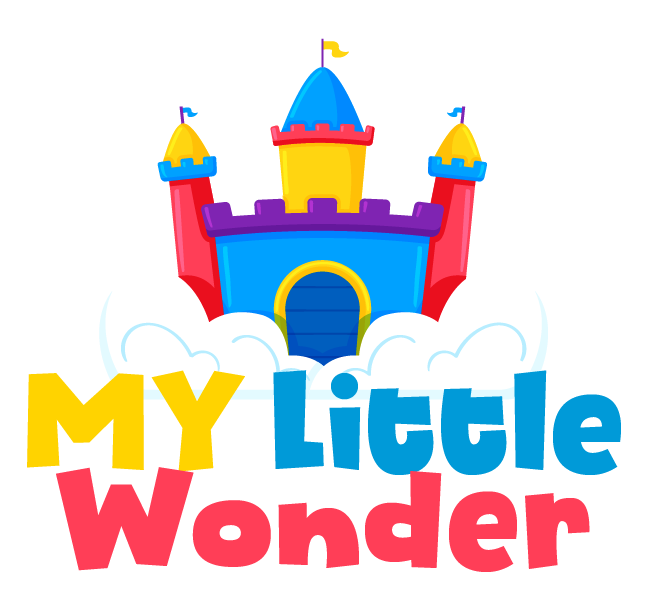Congratulations on stepping into the rewarding yet challenging world of parenthood! As a new parent, you’re likely navigating a whirlwind of questions about how to provide the best care for your precious little one. One of the most crucial decisions you’ll face is choosing the right nutrition for your newborn. For many, this includes selecting the best baby formula to support their baby’s health and development.
Breastfeeding is widely recognized as the gold standard for infant nutrition, but it’s not always a feasible option for every family. Factors like low milk supply, medical conditions, or personal lifestyle choices might make baby formula a necessity or a supplement. The good news? Today’s baby formulas are scientifically designed to closely mimic the nutritional benefits of breast milk, providing your baby with essential nutrients for a healthy start.
This comprehensive guide is here to empower you with knowledge, helping you navigate the many options available. We’ll explore the different types of baby formulas, key nutritional factors to look for, and tips for preparing and feeding your newborn safely. Along the way, we’ll bust common myths, answer frequently asked questions, and provide practical advice to ease your journey.
Ready to dive in? Let’s uncover everything you need to know about choosing the best baby formula for your newborn. After all, your baby deserves nothing but the best!
Why Is Baby Formula an Essential Choice for Some Parents?
For many parents, the decision to use baby formula is a practical, emotional, and sometimes necessary choice. While breastfeeding is celebrated for its nutritional and bonding benefits, there are circumstances where formula becomes essential to ensure a baby’s health and the family’s well-being.
When Formula Becomes Necessary
Some mothers may face challenges that make breastfeeding difficult or impossible. Conditions such as low milk supply, maternal health issues, or medications that affect breast milk quality can lead to the need for formula. In other cases, formula serves as a supplement to breastfeeding, ensuring that a baby receives sufficient nutrition.
Lifestyle factors also play a role. Parents returning to work, balancing caregiving responsibilities, or managing sleep schedules may rely on formula as a convenient and reliable option. Additionally, for adoptive or non-biological parents, formula is a crucial way to nourish and bond with their newborn.
How Formula Complements Breastfeeding
It’s important to understand that formula isn’t an "either-or" solution—it can work hand-in-hand with breastfeeding. Many families successfully practice combination feeding, where formula fills in gaps when breastfeeding alone doesn’t meet a baby’s needs. This flexibility ensures your child thrives regardless of feeding circumstances.
Pro Tip: Before choosing or switching to a formula, always consult with your pediatrician.
Types of Baby Formulas Available
The baby formula aisle can feel overwhelming with the wide array of options available. Understanding the main types of formulas and their intended purposes can help simplify your decision-making process. Here’s a breakdown of the most common categories:
Cow’s Milk-Based Formulas
Cow’s milk-based formulas are the most widely used and are designed to be easily digestible for newborns. They contain a balanced mix of proteins, carbohydrates, and fats that mimic the composition of breast milk. The proteins in these formulas are typically modified to make them gentler on a baby’s developing digestive system.
- Ideal For: Healthy newborns without specific dietary restrictions.
- Pro Tip: Always check for added nutrients like DHA and ARA, which support brain and eye development.
Soy-Based Formulas
Soy-based formulas are plant-based and are a great alternative for babies who are lactose intolerant or allergic to cow’s milk protein. These formulas use soy protein and are often fortified with essential vitamins and minerals to meet your baby’s nutritional needs.
- Ideal For: Babies with lactose intolerance or milk allergies, and families seeking plant-based options.
- Note: Consult with your pediatrician before choosing soy-based formula, as milk allergies and soy sensitivities often overlap.
Specialized Formulas
Specialized formulas cater to unique health needs or medical conditions. Examples include:
- Hypoallergenic Formulas: Designed for babies with protein allergies; proteins are extensively broken down for easier digestion.
- Preemie Formulas: Provide extra calories and nutrients for premature babies.
- Anti-Reflux Formulas: Thicker consistency to reduce spit-up and reflux symptoms.
These formulas are typically recommended under a pediatrician’s guidance, ensuring your baby receives the specific nutrition they require.
Tips for Feeding Comfort
To make feeding sessions more comfortable for you and your baby, consider using a supportive accessory like the My Little Wonder Feeding Support Nursing Pillow. It helps position your baby correctly and reduces strain on your arms and back during feedings.

How to Choose the Best Baby Formula?
Choosing the best baby formula for your newborn involves careful consideration of your baby’s unique needs and your family’s circumstances. With so many options available, it helps to focus on key factors that ensure your baby receives safe and optimal nutrition.
Key Factors to Consider
Ingredients:
- Look for formulas with essential nutrients like DHA, iron, and vitamins.
- Avoid products with excessive added sugars, artificial flavors, or preservatives.
- If your baby has a known sensitivity, consider hypoallergenic or lactose-free options.
Certifications and Safety:
- Choose formulas that meet the FDA’s nutritional standards.
- Look for certifications like USDA Organic if you prefer natural, pesticide-free ingredients.
Price:
- Formula costs can add up quickly. Store-brand formulas are often as nutritious as name-brand options but at a lower cost.
- Bulk purchasing or subscription services may offer discounts.
Type of Formula:
- Powdered formula is cost-effective but requires preparation.
- Liquid concentrates are easier to mix but slightly pricier.
- Ready-to-feed formulas are the most convenient but also the most expensive.
- Observe Your Baby’s Response
Every baby reacts differently to formula. After introducing a new formula, pay attention to your baby’s digestion, mood, and physical reactions. Signs like excessive spit-up, gas, or skin rashes may indicate the need for a different formula. Always consult your pediatrician if you notice these issues.
| Type | Best For | Key Features |
|---|---|---|
| Cow’s Milk-Based | Most healthy newborns | Balanced, easy-to-digest protein modifications |
| Soy-Based | Lactose intolerance, milk allergies | Plant-based, dairy-free |
| Hypoallergenic | Severe allergies or sensitivities | Proteins are extensively broken down |
| Anti-Reflux | Babies with frequent spit-up or reflux | Thicker consistency for better retention |
Nutritional Needs of a Newborn: What to Look for in a Formula
Ensuring that your newborn gets the right nutrition during their first few months of life is crucial for healthy growth and development. Baby formula is designed to meet these needs, but knowing which nutrients to prioritize can help you make an informed choice.
Essential Nutrients for Newborns
DHA and ARA:
- These are omega-3 and omega-6 fatty acids that support brain and eye development.
- Many formulas are fortified with these nutrients to mimic the benefits of breast milk.
Iron:
- Iron is essential for red blood cell production and preventing anemia.
- Look for formulas with added iron, as newborns' natural stores are often depleted by 6 months of age.
Probiotics and Prebiotics:
- Probiotics promote healthy gut bacteria, improving digestion.
- Prebiotics serve as food for probiotics, enhancing their effectiveness
Protein:
- Adjusted protein content in cow’s milk-based formulas ensures easy digestion.
- Hydrolyzed proteins are beneficial for babies with sensitivities.
Vitamins and Minerals:
- Vitamin D, calcium, and phosphorus are vital for strong bones.
- Ensure the formula contains a balanced mix of key micronutrients for holistic growth.
What to Avoid in a Formula
- Added Sugars: Formulas should not include unnecessary sweeteners.
- Artificial Additives: Check labels to avoid synthetic flavors, colors, or preservatives.
- Excessive Sodium: High sodium levels can be harmful to a newborn’s developing kidneys.
AAP Recommendations
The American Academy of Pediatrics (AAP) recommends choosing a formula fortified with iron and advises against homemade or unregulated formulas. Safety and consistency in nutrition are key for your baby’s health.
Decoding Labels
When scanning formula labels, look for terms like “Non-GMO,” which indicates that the product does not contain genetically modified ingredients, or “lactose-free” for babies with specific sensitivities. Avoid being swayed by marketing terms like “gentle” without verifying their meaning.
Organic vs. Non-Organic Baby Formulas: Does It Matter?
As parents become more conscious about the food their babies consume, the debate between organic and non-organic baby formulas has gained attention. While both options are designed to meet your baby’s nutritional needs, understanding the differences can help you make an informed choice.
What Are Organic Baby Formulas?
Organic baby formulas are made with ingredients grown without the use of synthetic pesticides, herbicides, or fertilizers. They are also free from genetically modified organisms (GMOs) and typically avoid artificial additives and preservatives.
Key Features:
- USDA Organic certification ensures the formula meets strict organic farming standards.
- Ingredients such as organic lactose and organic vegetable oils are common.
Pros and Cons of Organic Formulas
Pros:
- Natural Ingredients: Many parents prefer organic formulas for their perceived purity and minimal processing.
- Environmental Benefits: Organic farming methods are often more sustainable and environmentally friendly.
- Fewer Chemicals: They typically avoid artificial preservatives, hormones, and pesticides.
Cons:
- Cost: Organic formulas tend to be more expensive than non-organic options.
- Limited Availability: Some organic formulas may be harder to find in stores.
Non-Organic Formulas
Non-organic formulas are still rigorously tested and approved by the FDA to ensure safety and nutritional adequacy. These formulas may include conventional ingredients but still provide all the essential nutrients your baby needs.
- Benefits: More affordable and widely available. Some brands offer enhanced formulas with additional nutrients like probiotics or DHA.
Which Should You Choose?
The choice ultimately depends on your baby’s tolerance, your budget, and personal preferences. Organic formulas are ideal if you prioritize clean ingredients, while non-organic options are equally valid and often more budget-friendly.

How Much Formula Does a Newborn Need?
Feeding your newborn the right amount of formula can feel like a guessing game at first, but it’s easier to manage once you understand their needs and natural feeding patterns. Knowing how much and how often to feed your baby ensures they stay healthy and satisfied.
Feeding Schedule Basics
Newborns typically consume 2 to 3 ounces of formula every 3 to 4 hours during the first weeks of life. This amount gradually increases as they grow and their stomachs expand. By the time your baby reaches 1 month old, they may drink 4 ounces per feeding, with longer intervals between feedings.
- General Guideline: Aim for about 2.5 ounces of formula per pound of body weight daily. For example, an 8-pound baby would need approximately 20 ounces in 24 hours.
Adjustments for Premature or Underweight Babies
Premature or underweight babies often have smaller stomachs and unique nutritional needs. These babies may require smaller, more frequent feedings with a formula specifically designed for their development, such as preemie or high-calorie formulas. Always consult your pediatrician to tailor feeding schedules for these situations.
Tracking Growth and Hunger Cues
Babies are excellent at signaling their hunger and fullness. Look for signs like rooting (searching for a bottle or nipple) or putting their hands in their mouths. Conversely, if they turn away from the bottle or seem uninterested, they’re likely full.
A growth chart provided by your pediatrician is a great way to monitor your baby’s progress and ensure their feeding amounts align with their developmental milestones.
Preparing Baby Formula: Step-by-Step Guide
Preparing baby formula properly is essential to ensure your newborn receives safe and balanced nutrition. Whether you’re using powdered, liquid concentrate, or ready-to-feed formula, following correct preparation steps is vital to avoid health risks like contamination or improper dilution.
Step-by-Step Formula Preparation
Wash Your Hands and Equipment:
- Before you start, thoroughly wash your hands with soap and water.
- Sterilize bottles, nipples, and any equipment by boiling them in water for 5 minutes or using a sterilizer.
Choose the Right Water:
- Use clean, safe water to mix formula. For powdered or concentrated formula, boiled tap water that’s cooled to room temperature is ideal.
- If you’re unsure about your water supply, opt for bottled or distilled water labeled for infant use.
Measure Accurately:
- Follow the instructions on the formula container carefully.
- Use the provided scoop to measure the correct amount of powder or liquid concentrate.
Mix Thoroughly:
- Combine formula and water in the bottle, then swirl gently to mix. Avoid vigorous shaking, which can introduce air bubbles and lead to gas or discomfort.
Check Temperature:
- Test the formula’s temperature by dripping a small amount on the inside of your wrist. It should feel lukewarm, not hot.
Storing Prepared Formula
- Refrigeration: Store prepared formula in the refrigerator if not used immediately. It should be consumed within 24 hours.
- Discarding Leftovers: Any formula left in the bottle after feeding should be discarded to prevent bacterial growth.
- On-the-Go Tips: For outings, carry pre-measured formula powder and bottled water separately, mixing them as needed to maintain freshness.
Additional Tips for Nighttime Feeds
Invest in a rechargeable bottle warmer, like the My Little Wonder Bottle Warmer. It ensures your baby’s formula is at the perfect temperature, saving you time and stress during those late-night feeds.
Common Baby Formula Myths Debunked
When it comes to baby formula, myths and misconceptions abound. These misunderstandings can create unnecessary guilt or confusion for parents making feeding decisions. Let’s set the record straight on some common formula myths.
Myth 1: Formula-Fed Babies Don’t Bond with Their Parents as Well
Fact: Bonding is about love, care, and attention—not just how a baby is fed. Whether you’re breastfeeding or bottle-feeding, holding your baby close, maintaining eye contact, and speaking gently all foster a strong emotional connection.
Myth 2: All Baby Formulas Are the Same
Fact: While all baby formulas must meet strict FDA nutritional standards, their compositions vary significantly. Some are designed for sensitive stomachs, while others include added probiotics, DHA, or are made from organic ingredients. Choosing the right formula depends on your baby’s unique needs.
Myth 3: Formula Causes Long-Term Health Issues
Fact: Modern baby formulas are scientifically developed to provide balanced nutrition, supporting healthy growth and development. There is no credible evidence that formula feeding leads to long-term health problems. Whether you choose formula, breast milk, or a combination, your baby can thrive with proper care.
Myth 4: Formula Feeding Makes Babies Overweight
Fact: Overfeeding—whether formula or breast milk—is the key factor in weight gain, not the type of feeding. Parents should follow their baby’s hunger cues and avoid forcing them to finish bottles when they’re full.
Interesting Facts About Baby Formula
Baby formula has come a long way in its evolution, becoming a reliable and essential option for parents worldwide. Here are some fascinating facts that highlight its journey and importance:
1. Origins of Baby Formula
The first commercially available baby formula was introduced in the 1860s by German chemist Justus von Liebig. It was marketed as a "perfect infant food," providing an alternative to breast milk at a time when safe and nutritious substitutes were limited.
2. Mimicking Breast Milk
Modern baby formulas are designed to mimic the composition of breast milk as closely as possible. They include nutrients like DHA and ARA, which support brain and eye development, and prebiotics to aid digestion.
3. Popularity Among Parents
Today, over 60% of U.S. parents rely on baby formula during their baby’s first year. This statistic reflects the flexibility formula offers in meeting diverse family needs, from supplementing breastfeeding to being the sole source of nutrition.
4. Tailored to Unique Needs
Some formulas are tailored to address specific health conditions. For example, hypoallergenic formulas are available for babies with protein allergies, and anti-reflux formulas are thicker to reduce spit-up.

On-the-Go Formula Feeding Tips for Busy Parents
Traveling with a newborn can feel daunting, especially when it comes to feeding. However, with a bit of planning and the right tools, on-the-go formula feeding can be convenient and stress-free. Having essential items for traveling with a baby can make all the difference in keeping both you and your baby comfortable and prepared.
Packing Essentials for Outings
Pre-Measured Formula:
- Use formula dispensers to store pre-measured portions of powdered formula. This saves time and avoids messy spills while traveling.
Clean Bottles and Nipples:
- Pack enough sterilized bottles for the duration of your outing, along with extra nipples in case of unexpected spills.
Safe Water Supply:
- Carry bottled or pre-boiled water to mix formula. Look for water labeled as suitable for infants to ensure safety.
Insulated Bottle Bag:
- Keep prepared bottles warm or cool using an insulated bag to maintain the formula's temperature for longer.
Quick Preparation Tips
- Portable Bottle Warmers: A product like the My Little Wonder Portable Baby High Dining Chair offers a compact solution for bottle feeding on the go.
- Travel-Friendly Formula: Ready-to-feed formula is ideal for outings as it doesn’t require mixing or water.
Staying Organized
- Use a well-equipped diaper bag with dedicated compartments for bottles, formula, and feeding supplies.
- Carry sanitizing wipes to clean bottle parts or surfaces when access to water is limited.
Pro Tips: For road trips or flights, plan feeding times to align with travel breaks. Feeding your baby during takeoff and landing on a flight can also help reduce ear pressure discomfort.
Understanding Baby Formula Labels: What Parents Should Know
Decoding baby formula labels can feel like deciphering a foreign language. With so many claims and technical terms, it’s crucial to understand what these labels mean to make the best choice for your baby.
Key Terms to Look For
Non-GMO:
- Indicates that the formula does not contain genetically modified ingredients, often preferred by parents seeking a more natural option.
Lactose-Free:
- Designed for babies who cannot digest lactose, a natural sugar found in milk. This is common in formulas for babies with lactose intolerance or cow’s milk protein allergy.
Hypoallergenic:
- Proteins in these formulas are broken down (partially or extensively) to minimize allergic reactions, ideal for babies with severe protein allergies.
DHA and ARA:
- Essential fatty acids that support brain and eye development, mimicking the benefits of breast milk.
Iron-Fortified:
- Ensures adequate iron levels to prevent anemia, a standard recommendation by the American Academy of Pediatrics (AAP).
Stage Designations:
- Formulas are often labeled by stages (e.g., Stage 1 for newborns, Stage 2 for older infants). These stages reflect differences in nutritional needs as your baby grows.
Marketing Claims to Approach with Caution
“Gentle” or “Comfort” Formulas:
- These terms suggest the formula is easy on a baby’s digestive system. While often accurate, it’s important to verify if they address your baby’s specific needs (e.g., reduced lactose or hydrolyzed proteins).
“Closer to Breast Milk”:
- Many formulas are fortified to mimic breast milk, but no formula can replicate the complex antibodies and enzymes found in breast milk.
Tips for Choosing a Formula
- Read the ingredient list and compare it to your baby’s health needs or sensitivities.
- Avoid formulas with unnecessary additives like artificial flavors or excessive sweeteners.
- Consult your pediatrician for clarity if you’re unsure about certain ingredients or claims.
FAQs: Common Questions About Baby Formula
As a new parent, it’s normal to have countless questions about baby formula. Here are answers to some of the most common concerns to help you navigate this essential aspect of newborn care.
Can I Use Tap Water for Mixing Formula?
Yes, tap water is safe to use in most areas of the U.S., but it’s best to boil it and let it cool to room temperature before mixing formula, especially for newborns. If you’re unsure about the water quality in your area, consult your pediatrician or use bottled water labeled for infant use.
How Do I Store Unused Formula Safely?
- Prepared Formula: Refrigerate immediately if not used. Consume within 24 hours.
- Powder Formula: Store the opened can in a cool, dry place and use it within a month.
- Ready-to-Feed Formula: Follow the manufacturer’s instructions for storage, as it typically has a shorter shelf life once opened.
How Long Can Prepared Formula Sit Out Before It’s Unsafe?
Prepared formula should be used within 1-2 hours of mixing if kept at room temperature. Discard any leftover formula in the bottle after a feeding to prevent bacterial growth.
Is It Normal for Babies to Spit Up After Feeding?
Yes, mild spit-up is common and often due to air bubbles or overfeeding. If your baby spits up excessively or seems uncomfortable, consider a specialized anti-reflux formula and consult your pediatrician.
What’s the Difference Between Stage 1 and Stage 2 Formulas?
- Stage 1 Formula: Designed for newborns (0-6 months), with nutrients tailored for rapid early development.
- Stage 2 Formula: Suitable for older infants (6+ months), often with slightly higher levels of certain nutrients to match growing babies’ needs.
Are Powdered Formulas Less Nutritious Than Liquid Ones?
No, powdered and liquid formulas provide the same essential nutrition. The difference lies in convenience and cost. Ready-to-feed and liquid concentrates are more convenient but pricier, while powdered formulas are economical and require preparation.
Can Formula-Fed Babies Develop a Preference for Certain Bottles or Nipples?
Yes, babies can develop preferences for specific bottles or nipples based on their flow rate or feel. If your baby struggles with a particular bottle, experiment with others until you find the right fit.
Final Thoughts on Choosing the Right Baby Formula
Choosing the right baby formula is one of the many important decisions you’ll make as a new parent. While the process may seem overwhelming at first, remember that your efforts are rooted in love and care for your baby’s well-being. Whether you opt for cow’s milk-based, soy-based, or specialized formulas, the key is to prioritize your baby’s unique needs and consult your pediatrician when in doubt.
Parenting is a journey filled with trial and error, and it’s normal to make adjustments along the way. Trust your instincts, pay attention to your baby’s cues, and don’t hesitate to seek advice when needed. Each baby is different, and what works for one may not suit another, so flexibility and patience are vital.
We hope this guide has provided you with the knowledge and confidence to navigate the world of baby formula. Remember, no matter your choice, the ultimate goal is to ensure your baby receives the love, nourishment, and care they need to thrive.
If you have questions, tips, or experiences to share, we’d love to hear from you in the comments. Parenthood is a community, and your insights can help others on this beautiful journey. Happy parenting!




Leave a comment
This site is protected by hCaptcha and the hCaptcha Privacy Policy and Terms of Service apply.